Find Help
More Items From Ergsy search
-

Accessing cervical screening with the right support for people with a learning disability
Relevance: 100%
-

What is a learning disability?
Relevance: 63%
-
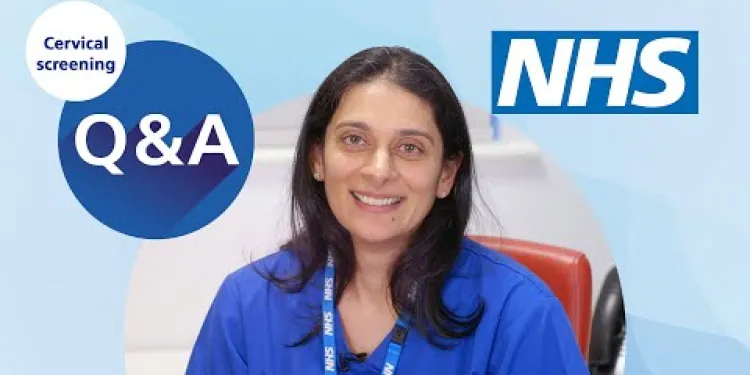
Cervical screening: Q&A | NHS
Relevance: 62%
-

The NHS is #StillHereToHelp with cervical screening
Relevance: 60%
-

What is cervical screening (smear test)?
Relevance: 58%
-

Cervical screening: what to expect | NHS
Relevance: 57%
-
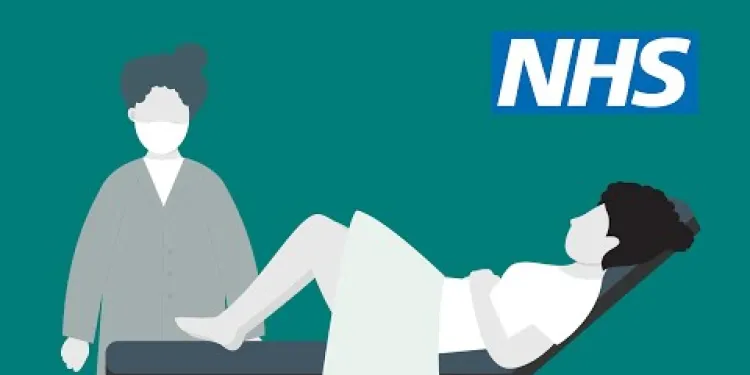
Cervical screening: how it's done | NHS
Relevance: 57%
-

Cervical screening for transgender men | NHS
Relevance: 57%
-

Cervical screening: what to expect | NHS
Relevance: 57%
-
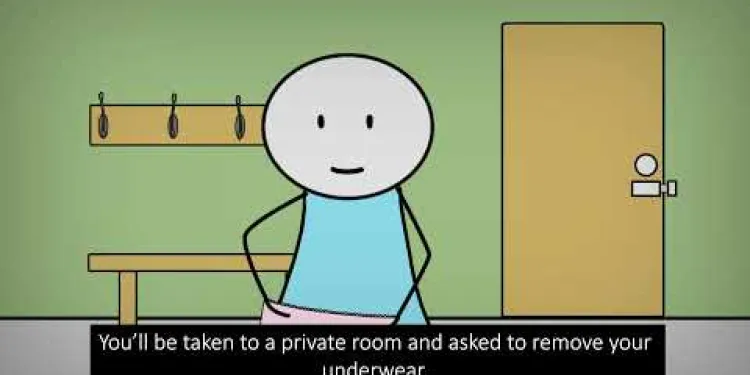
NHSGGC - Cervical Cancer Screening - English
Relevance: 57%
-
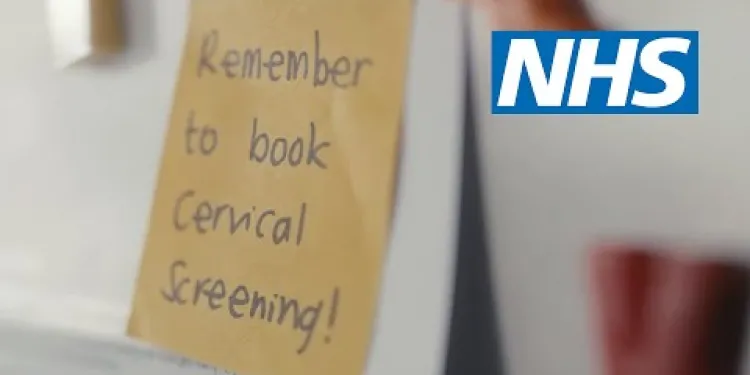
Don’t ignore your cervical screening invite | NHS
Relevance: 56%
-

Flu vaccinations for people with a learning disability
Relevance: 56%
-

The NHS Long Term Plan for learning disability and autism
Relevance: 56%
-

When should cervical cancer screening begin?
Relevance: 55%
-

Cervical screening (smear test) – what’s it all about?
Relevance: 54%
-

Cervical screening for women who have experienced sexual assault | NHS
Relevance: 50%
-
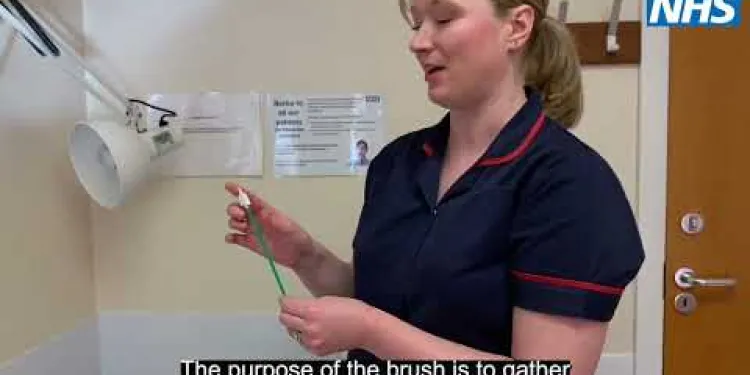
Booked in for your smear test (cervical screening) and not sure what to expect?
Relevance: 49%
-

Use of reasonable adjustments to reduce health inequalities for people with a learning disability
Relevance: 46%
-

Transforming Care for people with Learning Disabilities and/ or Autism: Peter's Story
Relevance: 46%
-

Harshi’s learning disability annual health check and health action plan
Relevance: 44%
-

What is the link between HPV and cervical cancer?
Relevance: 43%
-

NHS-led Provider Collaboratives: improving mental health, learning disability and autism services
Relevance: 39%
-

Health Screenings You Should Know About
Relevance: 37%
-

What kinds of cancer screening are available?
Relevance: 36%
-

What is cancer screening?
Relevance: 35%
-

Are there grants specifically for individuals with disabilities?
Relevance: 32%
-

Can children with disabilities access school meals?
Relevance: 31%
-

AI Breast Cancer Screening in the UK
Relevance: 29%
-

Profound intellectual and multiple disabilities | NHS
Relevance: 29%
-

Can AI systems reduce the rate of false positives in lung cancer screening?
Relevance: 27%
-

Debate Intensifies Over Welfare Reforms Impacting Disabled Citizens
Relevance: 26%
-

Where can I learn First Aid?
Relevance: 26%
-

Can I learn first aid as a group?
Relevance: 25%
-

Is genetic screening available for cancer risk?
Relevance: 25%
-
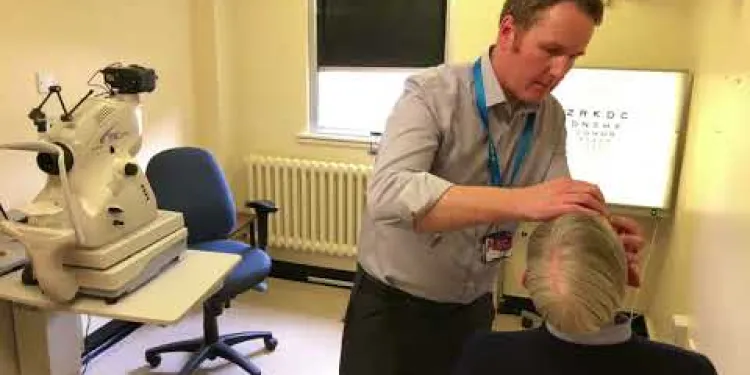
Derbyshire Diabetic Eye Screening - Diabetic Eye Screening
Relevance: 25%
-
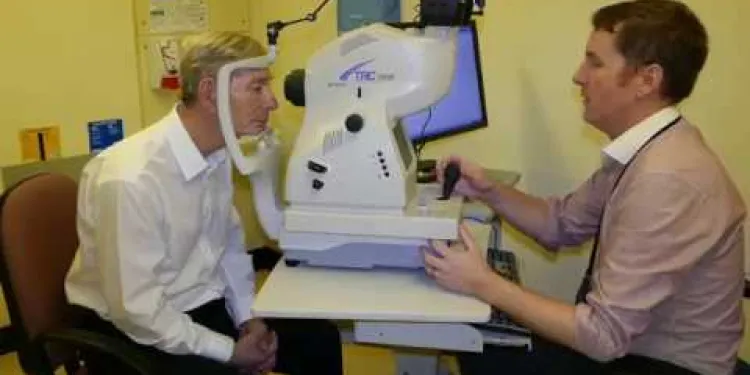
Derbyshire Diabetic Eye Screening - Your Screening Appointment
Relevance: 25%
-

Are there free resources for learning first aid?
Relevance: 25%
-

Dyslexia, Dyspraxia & Overlapping Learning Difficulties
Relevance: 25%
-
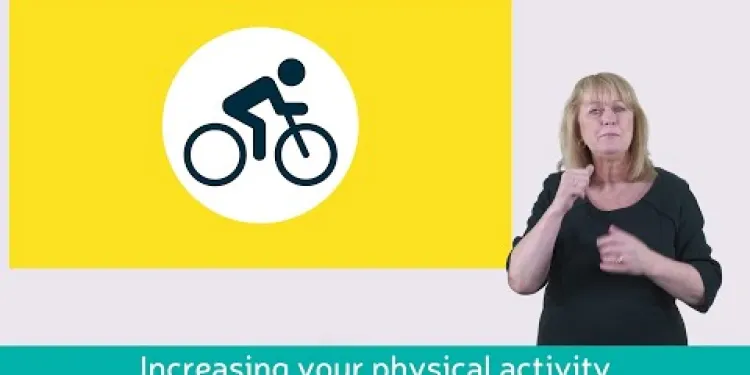
Learn about bowel cancer (British Sign Language version)
Relevance: 25%
-

Diabetes Eye Screening
Relevance: 24%
Accessing Cervical Screening with the Right Support for People with a Learning Disability
The Importance of Cervical Screening
Cervical screening is vital for detecting early changes in the cells of the cervix that could potentially develop into cervical cancer. For women with a learning disability, accessing this service can be particularly challenging. Ensuring that these individuals receive the correct support is crucial to their health and well-being.
Removing Barriers to Screening
People with learning disabilities may face several barriers when accessing cervical screening. These can include communication difficulties, anxiety, and lack of accessible information. Healthcare professionals in the UK must be aware of these challenges and actively work to remove these barriers.
Providing Accessible Information
Providing information in easy-to-understand formats is essential. This can include using simple language, pictures, and videos to explain what cervical screening is and what will happen during the appointment. NHS services can offer leaflets, videos, and websites designed to be accessible to people with learning disabilities.
Person-Centred Support
It is important to provide person-centred support. This can involve taking extra time during appointments for explanations, allowing trusted carers or family members to be present, and offering sedation if necessary to reduce anxiety. Flexible appointment times and locations may also help to accommodate individual needs.
Training for Healthcare Providers
Training for healthcare providers on the needs of people with learning disabilities can greatly improve the screening experience. This training can include how to communicate effectively, understanding specific needs, and adopting a compassionate approach to care.
Encouraging Regular Screening
Encouraging regular screening is critical. Women with learning disabilities should be reminded of the importance of attending screening appointments and supported throughout the process. Regular follow-up appointments can ensure they do not miss out on vital health checks.
Conclusion
Accessing cervical screening with the right support for people with a learning disability is essential in the UK. By providing accessible information, person-centred support, and adequate training for healthcare providers, we can ensure that these individuals receive the care they need to maintain their health.
Help for People with Learning Disabilities to Get Cervical Screening
Why Cervical Screening is Important
Cervical screening checks for changes in the cervix that could turn into cancer. Women with learning disabilities may find it hard to get screened. They need the right help to stay healthy.
Making Screening Easier
Some people with learning disabilities find it hard to get a cervical screening. This is because of communication problems, feeling worried, or not having easy information. Doctors and nurses need to understand these problems and help make it easier.
Giving Easy Information
It's important to have information that's easy to understand. This can mean using simple words, pictures, and videos. The NHS can give leaflets, videos, and websites that are easy for people with learning disabilities to use.
Support That Fits the Person
Support should fit the person's needs. This may mean taking more time to explain things, letting carers or family be there, or giving medicine to help calm them. Choosing the best time and place for appointments can also help.
Training for Doctors and Nurses
Doctors and nurses can get training to understand what people with learning disabilities need. This can show them how to talk clearly and be kind and understanding.
Going for Regular Screening
It is important to have regular checks. Women with learning disabilities should be reminded to go to screening appointments. They need help to make sure they do not miss these important health checks.
Summary
Helping people with learning disabilities to get cervical screening is important in the UK. We can do this by giving easy information, support that fits the person, and training for doctors and nurses. This will help them stay healthy.
Frequently Asked Questions
What is cervical screening and why is it important?
Cervical screening is a test to check the health of the cervix. It helps prevent cervical cancer by detecting and treating any abnormal cell changes early.
How often should people with a learning disability go for cervical screening?
People with a learning disability, like others, should be invited for cervical screening every three years if they are aged 25 to 49, and every five years if they are 50 to 64.
Do people with a learning disability have to go for cervical screening?
Cervical screening is not mandatory, but it is highly recommended as it can help protect against cervical cancer. It's important to have a discussion with a healthcare provider about the benefits and any concerns.
How can someone with a learning disability prepare for a cervical screening?
Preparation includes understanding what will happen during the test, discussing any concerns with a healthcare provider, and possibly arranging for support or an advocate to accompany them.
What should be done if someone with a learning disability feels anxious about the screening?
It's important to talk to a healthcare provider about their anxiety. They can provide reassurance, explain the procedure in detail, and may offer the option of a familiar face being present during the screening.
Can someone with a learning disability bring a support person to the cervical screening?
Yes, bringing a support person such as a family member, friend, or advocate can help provide comfort and reassurance during the screening.
What type of support is available for people with a learning disability during cervical screening?
Support can include easy-to-read information, longer appointment times, the presence of a familiar person, and the option to ask for breaks during the procedure. Healthcare providers can make reasonable adjustments to meet individual needs.
How can healthcare providers help make cervical screening more accessible?
Providers can offer clear, simple explanations, visual aids, longer appointments, and ensure their environment is welcoming and accessible. They can also provide information in various formats to suit different needs.
What does the cervical screening procedure involve?
The procedure involves a nurse or doctor taking a small sample of cells from the cervix using a soft brush. This sample is then sent to a lab to check for any abnormal cells.
Is cervical screening painful?
Cervical screening can be uncomfortable, but it shouldn’t be painful. If there is any pain, it’s important to tell the nurse or doctor straight away.
What happens if abnormal cells are found during cervical screening?
If abnormal cells are found, further tests will be needed to determine the best course of action. Early detection allows for more effective treatment.
How can someone with a learning disability understand their cervical screening results?
Results will be sent by post, and they can contact their healthcare provider to explain the results in an understandable way. Bringing a support person to appointments can also help with this.
Does having a learning disability affect the likelihood of needing cervical screening?
Having a learning disability does not specifically affect the likelihood of needing cervical screening, but everyone with a cervix between the ages of 25 and 64 should attend regular screenings.
What should be done if someone with a learning disability is overdue for cervical screening?
They should contact their GP or healthcare provider to schedule an appointment as soon as possible. Healthcare providers can assist with reminders and making the necessary arrangements.
How can carers and family members support someone with a learning disability in attending cervical screening?
Carers and family members can help by providing information, reassurance, and accompanying the person to appointments. Encouraging open discussions about any fears or concerns can also be helpful.
What is Cervical Screening and Why is it Important?
Cervical screening is a health check for women. It looks for changes in the cervix (the neck of the womb). This check helps to find things early before they turn into cancer.
It is important because it can keep you healthy and safe. Finding changes early means they can be treated easily.
Here are some tools to help you:
- Ask a Friend: Talk to someone you trust about cervical screening.
- Use Pictures: Look at pictures or videos that explain cervical screening.
- Ask Questions: Write down questions and ask your doctor.
Cervical screening is a test to make sure your cervix is healthy. It helps stop cervical cancer by finding and fixing any changes in the cells early.
How often should people with learning disabilities have a cervical screening test?
People with learning disabilities should have a cervical screening test regularly. It helps check for any health problems early.
Here is what you need to know:
- Most people should have the test every 3 to 5 years. Your doctor will tell you the best time.
- Cervical screening is important. It can help keep you healthy.
- If you have any questions, ask your doctor or nurse. They can explain things to you.
You can use pictures or videos to understand better. Bringing a friend or family member can also help.
People who have a learning disability should get a cervical screening. If they are aged 25 to 49, they should go every three years. If they are aged 50 to 64, they should go every five years.
Do people with learning difficulties need to have a cervical screening test?
Cervical screening is a test for women to check their health. It looks for changes in the cervix, which is part of a woman's body.
If you have learning difficulties, you should still have this test. It helps keep you healthy.
Helpful Tips:
- Ask a trusted person to go with you.
- Use pictures and simple words to understand the test.
- Tell the doctor or nurse if you are worried or have questions.
Cervical screening is not something you have to do, but it is a good idea. It can help stop cervical cancer. It's important to talk with a doctor or nurse about how it can help you and share any worries you have.
How can a person with a learning disability get ready for a cervical screening?
A cervical screening is a health check for women. It checks for changes in the cervix, which is the lower part of the womb. Here is how to get ready:
- Ask a friend, family member, or support worker to help you understand what will happen during the screening.
- Talk to your doctor or nurse. They can explain the steps and answer any questions you have.
- Look for easy-to-read information or videos that explain cervical screening.
- Ask if someone you trust can go with you to the appointment for support.
- Use reminders, like notes or phone alerts, to remember your appointment.
To get ready for the test, it helps to know what will happen. Talk to your doctor or nurse if you are worried. You can also ask someone to go with you for support.
What to do if someone with a learning disability feels worried about the screening?
1. Talk to them in a calm and kind voice.
2. Explain what will happen during the screening step by step.
3. Use simple words and pictures to help them understand.
4. Allow them to ask questions and answer them clearly.
5. Offer them something to hold or play with to help them feel calm.
6. Let them bring a friend, family member, or support worker they trust.
7. Take breaks if they need to rest or relax.
It's good to talk to a doctor or nurse if you feel worried. They can help you feel better. They can tell you what will happen. You might be able to have someone you know with you while it happens.
Can someone with a learning difficulty bring a helper to the cervical screening?
Yes, you can bring a helper with you. It's okay to have someone you trust with you when you go for your cervical screening. This person can be a friend, family member, or support worker.
Here are some tips to make it easier:
- Ask your doctor or nurse if you can bring someone with you before the appointment.
- Choose someone who helps you feel calm and comfortable.
- Let the helper know what you need. They can support you by asking questions or helping you understand what is happening.
Yes, you can bring someone to help you, like family, a friend, or someone who speaks up for you. They can make you feel safe and happy during the check-up.
Help for People with Learning Disabilities During Cervical Screening
If you have a learning disability, you can get help during cervical screening. Here is some simple information:
- Easy Information: You can ask for easy words and pictures to understand the test.
- Support Person: You can bring a friend, family member, or helper with you to the appointment.
- Quiet Time: You can ask for your appointment at a quiet time of day.
- Extra Time: If you need more time to understand things, just ask.
- Talk to the Nurse: Before the check-up, you can talk to the nurse about any worries.
These things can help make the cervical screening easier for you. If you need any of this help, tell your doctor or nurse.
You can get help by having information that is easy to understand. You might have more time for your appointments. You can bring someone you know with you. You can also ask to take breaks if you need to. Doctors and nurses can change things to help you better.
How can doctors and nurses make cervical screening easier to access?
Cervical screening is a test that checks if your cervix is healthy. It's important for women's health.
Doctors and nurses can help by:
- Explaining what the test is and why it matters, using simple words.
- Offering appointments at different times, including evenings and weekends.
- Making sure clinics are easy to get to and friendly for people using wheelchairs.
- Using pictures and videos to show what happens during the test.
- Letting people bring a friend or family member for support.
These things can make it easier for everyone to get the care they need.
Doctors and helpers can make things easy to understand by using simple words and pictures. They can give more time for visits and make sure their place feels friendly and easy to get to. They can also give information in different ways so everyone can understand.
What happens in a cervical screening test?
A cervical screening test checks the health of your cervix. The cervix is the lower part of your womb at the top of your vagina.
A nurse or doctor will do the test. They will gently put a small, soft brush into your vagina to collect some cells from your cervix.
It might feel a bit uncomfortable, but it should not hurt. The test only takes a few minutes.
You can ask the nurse or doctor to explain what they are doing. You can also take someone with you if you want.
There are things that can help you feel more comfortable, like breathing slowly or listening to music.
A nurse or doctor will use a soft brush to take a small sample of cells from your cervix. This means they gently collect a tiny bit of tissue from your body. Then, they send this sample to a lab to see if there are any unusual cells.
Here are some tips that might help: - **Ask someone you trust to come with you.** It can make you feel better. - **Take deep breaths.** This can help you stay calm. - **Ask the nurse or doctor questions.** They are there to help you understand.Does a cervical screening hurt?
A cervical screening test checks if your cervix is healthy. Some people feel a little bit of discomfort, but it should not be very painful. If you are worried, tell the nurse or doctor. They can help you feel more comfortable.
Here are some tips to help you:
- Take deep breaths to relax.
- Ask questions if you are unsure about anything.
- Bring a friend or support person with you, if it helps.
Having a cervical screening test might feel a bit uncomfortable, but it should not hurt. If it does hurt, make sure to tell the nurse or doctor right away.
What if doctors find unusual cells during a cervical screening?
Cervical screening checks your cervix to keep it healthy. The cervix is in your body and helps with babies.
Sometimes, doctors find unusual (abnormal) cells when they check. This does not mean you have cancer. It means these cells are not normal. They could turn into cancer if not treated.
If doctors find unusual cells, they will talk to you about what happens next.
Doctors might want to look more closely at your cervix. They might do a special test called a colposcopy.
Ways to help understand:
- Ask a family member or friend to explain.
- Use pictures to learn more about how the body works.
- Ask your doctor or nurse questions.
If doctors find any cells that do not look normal, they will do more tests. These tests help doctors decide what is the best way to help you get better. Finding these cells early means it is easier to treat them.
How can a person with a learning difficulty understand their cervical screening results?
Cervical screening is a health check for people with a cervix. It looks for changes in the cervix that might make you sick.
When you get your results, they will tell you if everything is okay. If there is a problem, the results will explain what to do next.
Here are some ideas to help you understand your results:
- Ask your doctor or nurse to explain the results in simple words.
- Bring a friend or family member to help you ask questions.
- Use pictures or drawings to help you understand.
These steps can make it easier to know what your results mean and what to do next.
The results will come in the mail. They can ask their doctor to explain the results so it's easy to understand. It can be helpful to bring a friend or family member to appointments.
Do people with learning difficulties need cervical screening tests more often?
People with learning difficulties may need extra help to understand cervical screening. It is important for everyone to have these health checks. Talk to your doctor or nurse about what is best for you. They can help explain in simple words.
Having a learning disability doesn't change if you need a cervical screening. Everyone with a cervix who is between 25 and 64 years old should have regular checks.
If you find reading hard, you could ask someone you trust for help. Or you can use tools like text-to-speech, which lets the computer read the text out loud for you.
What to do if someone with a learning disability has not had their cervical screening on time?
If someone with a learning disability has not gone for their cervical screening yet, here are some steps to help:
- Talk to a doctor or nurse. They can explain why the test is important.
- Make an appointment for the screening test.
- Ask for help from a friend, family member, or support worker to go with you.
- Use pictures or videos that show what will happen during the test. This can help understand the process better.
Remember, doctors and nurses are there to help and answer any questions. It is okay to ask them for help or more information.
They should call their doctor or healthcare provider to make an appointment as soon as they can. Doctors can help with reminders and setting up what is needed.
How can carers and family help someone with a learning disability go to a cervical screening?
Carers and family can help by:
- Explaining what cervical screening is in simple words.
- Showing pictures or videos about cervical screening.
- Helping to make the screening appointment.
- Going with them to the appointment for support.
- Talking to the nurse or doctor about any worries.
- Using reminder tools like calendars or phone alerts.
- Encouraging them to ask questions and express feelings.
Carers and family can help in different ways:
- Share information with the person.
- Give reassurance and comfort.
- Go with them to see the doctor.
- Talk openly about what worries them. It's good to ask questions and share any fears or concerns.
Things like speaking slowly, using simple words, and repeating important information can make it easier to understand. Using pictures or writing things down can also help.
Useful Links
Have you found an error, or do you have a link or some information you would like to share? Please let us know using the form below.
-->
This website offers general information and is not a substitute for professional advice.
Always seek guidance from qualified professionals.
If you have any medical concerns or need urgent help, contact a healthcare professional or emergency services immediately.
Some of this content was generated with AI assistance. We’ve done our best to keep it accurate, helpful, and human-friendly.
- Ergsy carfully checks the information in the videos we provide here.
- Videos shown by Youtube after a video has completed, have NOT been reviewed by ERGSY.
- To view, click the arrow in centre of video.
- Most of the videos you find here will have subtitles and/or closed captions available.
- You may need to turn these on, and choose your preferred language.
- Go to the video you'd like to watch.
- If closed captions (CC) are available, settings will be visible on the bottom right of the video player.
- To turn on Captions, click settings .
- To turn off Captions, click settings again.
More Items From Ergsy search
-

Accessing cervical screening with the right support for people with a learning disability
Relevance: 100%
-

What is a learning disability?
Relevance: 63%
-

Cervical screening: Q&A | NHS
Relevance: 62%
-

The NHS is #StillHereToHelp with cervical screening
Relevance: 60%
-

What is cervical screening (smear test)?
Relevance: 58%
-

Cervical screening: what to expect | NHS
Relevance: 57%
-

Cervical screening: how it's done | NHS
Relevance: 57%
-

Cervical screening for transgender men | NHS
Relevance: 57%
-

Cervical screening: what to expect | NHS
Relevance: 57%
-

NHSGGC - Cervical Cancer Screening - English
Relevance: 57%
-

Don’t ignore your cervical screening invite | NHS
Relevance: 56%
-

Flu vaccinations for people with a learning disability
Relevance: 56%
-

The NHS Long Term Plan for learning disability and autism
Relevance: 56%
-

When should cervical cancer screening begin?
Relevance: 55%
-

Cervical screening (smear test) – what’s it all about?
Relevance: 54%
-

Cervical screening for women who have experienced sexual assault | NHS
Relevance: 50%
-

Booked in for your smear test (cervical screening) and not sure what to expect?
Relevance: 49%
-

Use of reasonable adjustments to reduce health inequalities for people with a learning disability
Relevance: 46%
-

Transforming Care for people with Learning Disabilities and/ or Autism: Peter's Story
Relevance: 46%
-

Harshi’s learning disability annual health check and health action plan
Relevance: 44%
-

What is the link between HPV and cervical cancer?
Relevance: 43%
-

NHS-led Provider Collaboratives: improving mental health, learning disability and autism services
Relevance: 39%
-

Health Screenings You Should Know About
Relevance: 37%
-

What kinds of cancer screening are available?
Relevance: 36%
-

What is cancer screening?
Relevance: 35%
-

Are there grants specifically for individuals with disabilities?
Relevance: 32%
-

Can children with disabilities access school meals?
Relevance: 31%
-

AI Breast Cancer Screening in the UK
Relevance: 29%
-

Profound intellectual and multiple disabilities | NHS
Relevance: 29%
-

Can AI systems reduce the rate of false positives in lung cancer screening?
Relevance: 27%
-

Debate Intensifies Over Welfare Reforms Impacting Disabled Citizens
Relevance: 26%
-

Where can I learn First Aid?
Relevance: 26%
-

Can I learn first aid as a group?
Relevance: 25%
-

Is genetic screening available for cancer risk?
Relevance: 25%
-

Derbyshire Diabetic Eye Screening - Diabetic Eye Screening
Relevance: 25%
-

Derbyshire Diabetic Eye Screening - Your Screening Appointment
Relevance: 25%
-

Are there free resources for learning first aid?
Relevance: 25%
-

Dyslexia, Dyspraxia & Overlapping Learning Difficulties
Relevance: 25%
-

Learn about bowel cancer (British Sign Language version)
Relevance: 25%
-

Diabetes Eye Screening
Relevance: 24%


